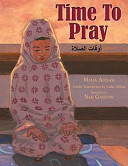
When young Yasmin goes for a visit, her grandmother teaches her a Muslim’s daily prayers, makes special prayer clothes, and gives a gift that will help Yasmin remember when to pray. Includes facts about prayer customs.

When young Yasmin goes for a visit, her grandmother teaches her a Muslim’s daily prayers, makes special prayer clothes, and gives a gift that will help Yasmin remember when to pray. Includes facts about prayer customs.

Retells folktales and fables from Iran, including the story of a mouse and a cockroach who fell in love, a foolish weaver’s apprentice, and a boy with the head of a chickpea.
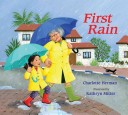
When Abby moves with her family to Israel, she misses her grandmother and during the dry Israeli summer, she remembers the fun they used to have splashing in puddles together
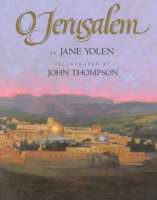
A poetic tribute to Jerusalem, in honor of the 3000th anniversary of its founding, celebrating its history as a holy city for three major religions.
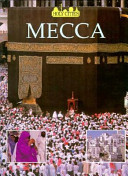
Charts the development of Mecca as the most holy city for the world’s community of Muslims, and explains clearly the history of Islam itself; shows how Mecca symbolizes the richness of Islam through its traditions, its religious festivals, and powerful art and architecture.

Deborah Ellis’s enormously popular Breadwinner trilogy recounted the experiences of children living in Afghanistan; now Ellis turns her attention to the young people of the Israeli-Palestinian conflict. After visiting the region to conduct interviews, she presents their stories here in their own words. Twelve-year-old Nora, eleven-year-old Mohammad, and many others speak directly about their lives – which prove to be both ordinary and extraordinary: They argue with their siblings. They hate spinach. They have wishes for the future. Yet they have also seen their homes destroyed and families killed, and live amidst constant upheaval and violence.This simple, telling book allows young readers everywhere to see that the children caught in this conflict are just like them – but living far more difficult and dangerous lives. Without taking sides, it presents an unblinking portrait of children victimized by the endless struggle around them.
Tasneem is so happy at her new school and with her new friends, Lisa and Yvonne. Suddenly her friends start avoiding her and calling her names. What could possibly have happened and what has it to do with vegetarian dinners and wearing a scarf?
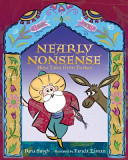
Nasrudin Hoja was a mullah (teacher) in Turkey. He was a busy man – he worked in a vineyard, gave sermons at the mosque, and was sometimes even a judge. He did all of this with a nagging wife, a constant stream of uninvited visitors, and many animals. Although Hoja’s life wasn’t easy, his heart was always light and his observations about life held a witty twist. For instance, when his donkey got lost, his neighbors offered sympathy, but Hoja found the bright side: “Imagine if I were riding the donkey at the time. I’d be lost too!”Though the ten Hoja stories presented by Rina Singh and richly illustrated by Farida Zaman are funny, each one contains such insight into human nature that Sufi teachers use them to illustrate their teachings. Traditional Turkish Hoja stories are much-loved throughout Asia, and Nearly Nonsense brings them to a North American readership sure to enjoy them and, through laughter, to learn from them.
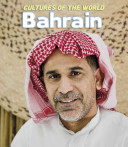
The highly regarded Cultures of the World series celebrates the diversity of other cultures in this fully updated and expanded edition.
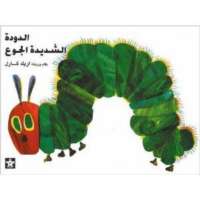
Arabic translation of The Very Hungry Caterpillar. One sunny Sunday, the caterpillar was hatched out of a tiny egg. He was very hungry. On Monday, he ate through one apple; on Tuesday, he ate through two pears; on Wednesday he ate through three plums – and still he was hungry. Strikingly bold, colorful pictures and a simple text in large clear type tell the story of the hungry little caterpillar’s progress through an amazing variety and quantity of foods. Full at last, he made a cocoon around himself and went to sleep, to wake up a few weeks later wonderfully transformed into a butterfly.